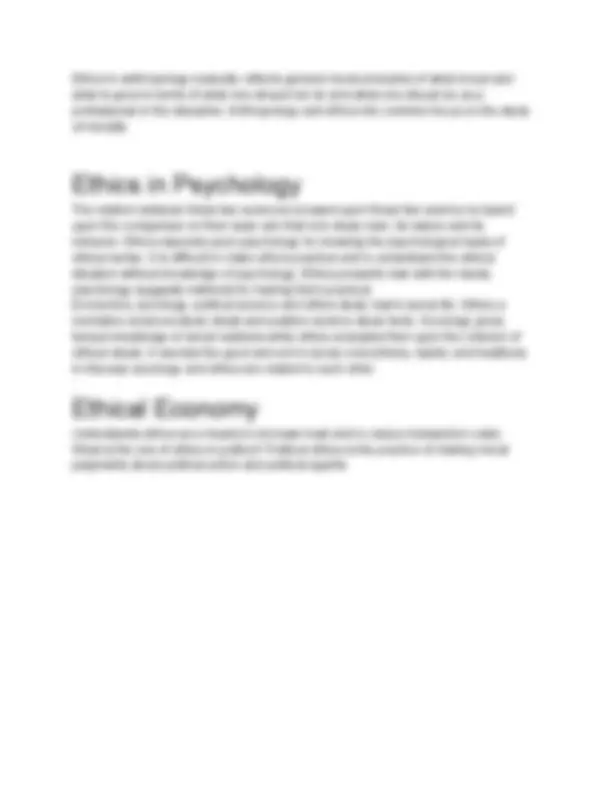



Study with the several resources on Docsity

Earn points by helping other students or get them with a premium plan


Prepare for your exams
Study with the several resources on Docsity

Earn points to download
Earn points by helping other students or get them with a premium plan
Community
Ask the community for help and clear up your study doubts
Discover the best universities in your country according to Docsity users
Free resources
Download our free guides on studying techniques, anxiety management strategies, and thesis advice from Docsity tutors
Meaning of Ethics and why it's important
Typology: Study notes
1 / 3

This page cannot be seen from the preview
Don't miss anything!


Ethical thinking, valuing, and reasoning fall somewhere along a continuum between two opposing views ethical relativism and ethical objectivism.
Is the belief that it is acceptable for ethics and morality differ among people or societies. There are two types of ethical relativism: A.) Ethical subjectivism Believe that individual create their own morality and that there are no objective moral truths only individual opinions. Example, people’s beliefs about actions being right or wrong or good or bad, depend on how people feel about actions rather than on reason or systematics analysis. What is believed by one person to be wrong might not be viewed as wrong by one’s neighbor depending on variations in opinions and feelings. B.) Cultural relativism What is wrong in one culture may not be so in another. This type of thinking can be dangerous because it theoretically may support relativist exploitative or hurtful actions. An example of cultural relativism is the belief that the act of female circumcision is a moral practice.
Ethics is called moral philosophy, the discipline concerned with what is morally good and bad and morally right and wrong.